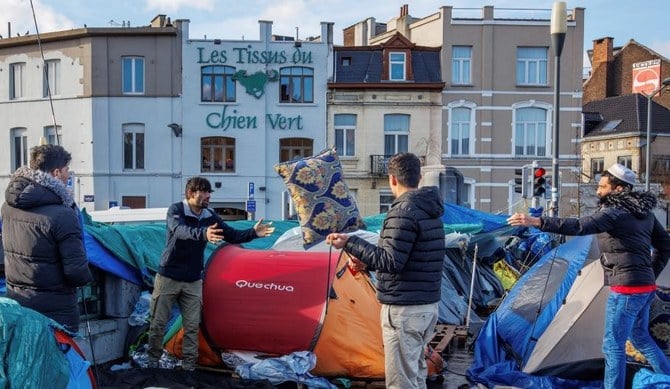
Migration and human mobility are as old as the world. They come with both challenges and opportunities for the migrants, as well as host societies and communities. Every country has a different set of values, perceptions, laws, regulations and policies on migration.
The last decade has witnessed massive numbers of migrants, asylum seekers and refugees, especially from Syria, Iraq, Afghanistan, Myanmar and several countries in Africa and Latin America. The favorite destinations for migrants remain the countries of the West. These nations offer refugees and migrants the path to permanent residency and citizenship, with all the associated rights and privileges. The same might not be true for other countries, where a temporary refugee status might be available without any sustainable solution for those who dream of starting a new life in their new-found land.
The countries of the GCC remain popular destinations for people from South Asia, the Philippines and some countries in Africa. This is partly because access to GCC countries’ labor markets is relatively easy and works through a formal immigration process without the need to resort to illegal travel. These countries offer immense opportunities for skilled and unskilled laborers, doctors, engineers, business specialists and entrepreneurs. Such workers and expatriates have played a major role in the development of GCC countries, while simultaneously benefiting their countries of origin. According to World Bank statistics, the UAE and Saudi Arabia rank second and third, respectively, after the US as the largest sources of international remittances.
Globally, migrants, regardless of their residence status, send billions of dollars to their home countries as remittances. As per an International Organization for Migration report, annual remittances increased from $126 billion in 2000 to $702 billion in 2020 — an average annual increase of about 23 percent, which is significant. Even COVID-19 only had a marginal impact on the overall volume of international remittances.
Some countries offer special visas and permanent residency based on prospective immigrants’ skills. For example, Canada, Australia and New Zealand offer skilled migrant visas to individuals with exceptional skills who can potentially contribute to their societies. While this is a formal and systematic process, the real challenge is of refugees who seek asylum upon entry into host countries. Asylum seekers mostly go through great hardships in an effort to reach their intended destinations, with many losing their lives during their ordeals. Those who make it have to prove their eligibility for asylum, which can take months and sometimes years. Only then can they start living a normal life.
Migration offers both challenges and opportunities for host countries, as well as countries of origin. For countries of origin, there are economic benefits thanks to the billions of dollars of remittances each year. But at the same time, it can also mean a brain drain as thousands of expert minds leave to explore opportunities overseas. For host nations, migrants bring new talents and skills and can be cheap labor. However, they also compete with local workers in the labor markets, putting pressure on local economies.
Most importantly, excessive numbers of foreigners, who eventually become part of the host communities, have demographic implications for these nations. This sometimes leads to opposition among politicians, who raise the issue of national identity if immigration is left uncontrolled. Since the Syrian crisis in 2011 and, more recently, the collapse of the Afghan government in August 2021 and Ukraine war in 2022, there have been new waves of asylum seekers and refugees, with thousands of people desperately trying to escape and make it to Western Europe and other favored destinations. Since then, it has become a hot topic in both domestic politics and foreign policy debate.
It is time the global community came up with a more coordinated response to one of the most pressing issues of our times.
Ajmal Shams
Some countries have emigration as a well-established institution. For example, Pakistan has a specific ministry for this purpose called the Ministry of Overseas Pakistanis. It promotes strong links between emigrants and their home country, in addition to facilitating their residence abroad and tackling their issues to maximize the benefits for both sides. On the other hand, Afghanistan does not possess any institutional arrangements for overseas Afghans. This is despite the fact that millions of Afghans have left the country and settled abroad since 1979, when the former Soviet Union occupied the country. Afghanistan has been blighted by political and economic chaos ever since. Linkages exist at personal, family and political levels that often result in unfair advantages for some.
Broadly speaking, immigration is a double-edged sword for both host nations and countries of origin in terms of political, economic and sociocultural considerations. If properly managed, immigration is a win-win for everyone. It is time the global community came up with a more coordinated response to one of the most pressing issues of our times.
Ajmal Shams is vice president of the Afghanistan Social Democratic Party. He served as a deputy minister in the former government of Afghanistan. Twitter: @ajmshams












